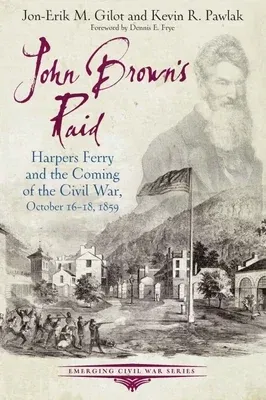The first shot of the American Civil War was not fired on April 12,
1861, in Charleston, South Carolina, but instead came on October 16,
1859, in Harpers Ferry, Virginia--or so claimed former slave turned
abolitionist Frederick Douglass.
The shot came like a meteor in the dark.
John Brown, the infamous fighter on the Kansas plains and detester of
slavery, led a band of nineteen men on a desperate nighttime raid that
targeted the Federal arsenal at Harpers Ferry. There, they planned to
begin a war to end slavery in the United States.
But after 36 tumultuous hours, John Brown's Raid failed, and Brown
himself became a prisoner of the state of Virginia.
Brown's subsequent trial further divided north and south on the issue of
slavery as Brown justified his violent actions to a national audience
forced to choose sides. Ultimately, Southerners cheered Brown's death at
the gallows while Northerners observed it with reverence. The nation's
dividing line had been drawn.
Herman Melville and Walt Whitman extolled Brown as a "meteor" of the
war. Roughly one year after Brown and his men attacked slavery in
Virginia, the nation split apart, fueled by Brown's fiery actions.
John Brown's Raid tells the story of the first shots that led to
disunion. Richly filled with maps and images, it includes a driving and
walking tour of sites related to Brown's Raid so visitors today can
follow the path of America's meteor.

